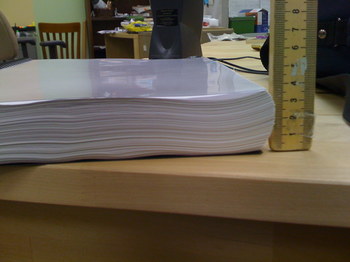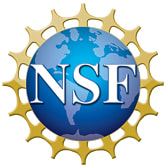|
In October, when I first got the request for a public abstract, IRB approval, and my response to questions, I was thrilled, and went into a frenzy of activity, digging further into discourse and linguistic analysis and survey design. The questions were exactly the questions I would have run into at some point, so to get them so early was immensely helpful. I therefore felt mentored and scaffolded by my program officer, Elliott Douglas (@ElliotPDouglas) and the anonymous reviewers on my panel.
I reached out to some of my advisory board members, who responded quickly, despite the short timeline. Special thanks to Jennifer Bekki, PhD for her detailed feedback and great suggestions about a resource for survey design: McCoach, D. B., Gable, R. K., & Madura, J. P. (2013). Instrument development in the affective domain. Social and Corporate Applications: Springer.
I began my first step, which was to attempt to adapt the agency toolkit for my analysis.
Konopasky, A. W., & Sheridan, K. M. (2016). Towards a diagnostic toolkit for the language of agency. Mind, Culture, and Activity, 1-16.
Abigail presented similar work in a session at AERA 2017, and it resonated with me. Adapting this was productive and fun, if slightly speculative work at the outset. It was a bit of a leap of faith, as this was a new-to-me focus on qual analysis.

Part of my phase 1 work is to reanalyze existing data, including some of my dissertation data! When I did my dissertation, very few social scientists took the 3-paper dissertation route. As a result, I ended up with ~150 pages of interpreted transcript. While this looks impressive, it was essentially unpublishable work. And very little of that qualitative work has ever made it out of that dissertation. So my first step was to begin coding some of that work.
I was surprised at how well it initially worked. Because of my past as a geologist, I tend to look at longer timescales (weeks, months, years) of learning trajectories, using the tools of interaction analysis and conversation analysis. ‚Äã Jordan, B., & Henderson, A. (1995). Interaction analysis: Foundations and practice. Journal of the Learning Sciences, 4(1), 39-103.
What surprised me was the fractal quality I uncovered. Just as in geology, where the structures observed at the landscape scale are often also findable under the microscope in thin section, here, the patterns I saw over months were also findable in just a few turns of talk.
I reached out to another advisory board member, Dr. Tryphenia Peele-Eady, who directed me to a resource, and quickly diagnosed a dissatisfaction I was having: looking only at the functional linguistics did not fit what I was trying to accomplish. I needed a sociolinguistic approach. Together, we refined the coding scheme and conducted some analysis, which we submitted as a conference proceeding. This process of attempting to clarify framing agency also helped clarify for me that it really is a productive construct. While the two teams we analyzed both made decisions, only one team made designerly decisions. This approach easily differentiated between the two teams. Gee, J. P. (2014). An introduction to discourse analysis: Theory and method: Routledge.
In my proposal, I named several "peer thought partners" who "have a record of pushing my thinking constructively, and who are already familiar with my research." I reached out to one of them, Brian Gravel, and we worked on some analysis, thinking about the ways agency might play out in heterogenous design, a topic on which we are presenting at AERA 2018. We did some productive pushing and prodding on the construct of agency, which we hope to present at ICLS 2018.
Finally, I just want to reflect briefly on this experience so far. It has already pushed my thinking. I feel so privileged to have this opportunity, this push to do work I really want to do. In the busy-ness of academia, it is too easy to set aside some of the good but hard work for the right now work. I am so lucky to have this grant that pushes this good but hard work into the right now.
1 Comment
5/2/2023 10:48:34 pm
DMJ’s Private Practice team places lawyers from newly qualified to partner level. Our team works in the UK and internationally with a diverse range of law firms covering all practice areas.
Reply
Leave a Reply. |
Vanessa Svihla, PhDAssociate Professor, Organization, Information & Learning Sciences Archives
October 2019
Categories
This material is based upon work supported by the National Science Foundation under Grant No. EEC 1751369. Any opinions, findings, and conclusions or recommendations expressed in this material are those of the authors and do not necessarily reflect the views of the National Science Foundation.
|
 RSS Feed
RSS Feed